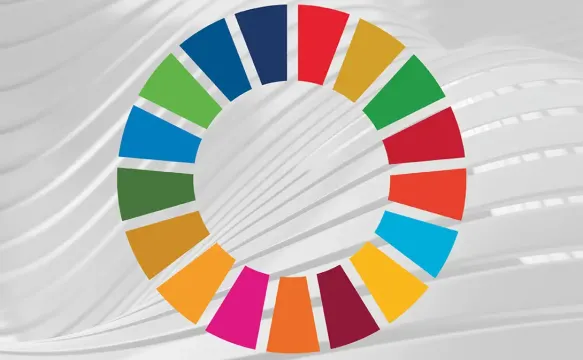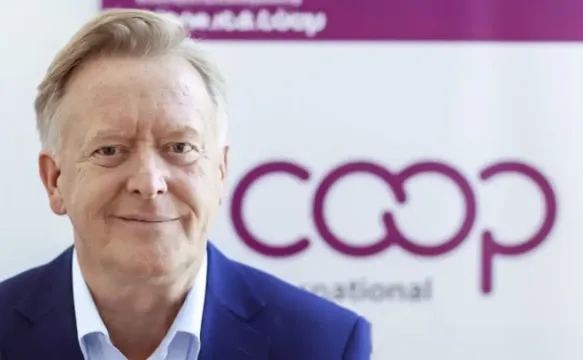Spain is one of the benchmark countries for social economy in the world and the organisations from the sector continue pushing forward to become stronger, creating more knowledge and sharing it. With the idea of continuing to innovate and being able to spread their way of doing things, the Cutting-Edge Hub of the Social Economy has been started up within the strategic projects for the economic recovery and transformation of the social economy (SPERT). Iñigo Albizuri, The Institutional Relations Manager at Mondragon, is in charge of leading ASETT, the think tank of the Cutting-Edge Hub. The executive, involved in the creation of the Hub and an expert in the sector in Spain, sets down the aims of the new association and the social economy needs in Spain.
Why did Spain need a Cutting-Edge Hub for Social Economy?
If you analyse successful companies within the social economy, you realise that virtually all of them are collective responses to problems that the Public Administration has not resolved, such as a problem concerning health care, consumption, work, or a lack of employment amongst others. When this happens, people apply their group knowledge, they transmit it and they make it work. We receive visits from many agents and after telling them our experiences, they become interested and they ask us if these ideas could be reproduced in other places around the world. But, although we are social, we are also an economy and this leads us to compete and often, we can’t see the wood for the trees. In our case, at Mondragón we share this thought with other organisations and after so many years hearing that our models cannot be reproduced, we have realised that the world needs more organisations like ours.” We decided to create a group to try to make this into a reality and this is the genesis of the project.
How were the first steps taken?
This discourse was shared with the Public Administrations. Spain has a social economy law, but it also has incredible cases such as the Fundació Espriu, Mondragón or Ilunion. It cannot be a coincidence that there are so many examples in the country. Often, we are not aware that the public-private collaboration, in spite of the problems, has had significant results in Spain. When we talk about the social economy in Spain, we say that it represents 10% of the Gross Domestic Product (GDP), compared to the 12% reached by tourism. However, it does not have the visibility it should. The project is framed in the SPERT of Social and Care Economy as a unique proposal. Our aim is to show that our model is both possible and feasible.
As these projects are covered by European funds, how did the pandemic affect it? Was it a time when greater resilience was shown?
Yes, it was a highly demanding moment. We realised that the social economy model has an enormous potential to respond in cases of crisis. If the social economy were to represent 25% of the GDP instead of 10%, Spain would be a country with greater equality and better opportunities. This is our vision.
According to your comments, the scope of the project covers areas both inside and outside Spanish borders, hasn’t it?
Yes, the project has three areas: institutional, business and academic. One is a think tank, aimed at generating knowledge about the role of the company in the reduction of inequality and social integration. But it is not only about thinking, but also acting. We do not only generate knowledge and public policies, we also put them into practice.
At the Hub they talk more about a “do tank” rather than a “think tank”. Why?
Yes, we play around with this idea. Knowledge is all well and good, but the important point is applying it. We say that the good ideas are the ones that are turned into action. The social economy stands out for resolving problems. If we want to tackle a problem, there probably already is a solution somewhere else. The idea is to connect these experiences and to get them up and running. In fact, it has the name Arizmendiarrieta Social Economy Think Tank, ASETT (due to its initials in Spanish) and we also wanted to relate them with the movement, showing an active attitude.
What areas does the Hub deal with?
We also have an institute of prospective studies, aimed at generating knowledge and research about emerging sectors and dynamic scenarios using five key points: legislative, financial, educational, cultural and creation of networks. The Hub will act as a laboratory that launches successful innovative initiatives, identifying the key points and moving them on.
Do you have any actions planned in the health sector?
Yes, we consider that the social economy exists to transform society. We are questioning what transforming society means in today’s world. An example is the care of the elderly, which is mainly in the hands of migrant workers. Why not train these migrants to give them better work opportunities? We are thinking about training schools that allow them to study and work at the same time.
Another topic is the relationship between technology and health. We have an inverted population pyramid in Spain and Europe and this is a challenge that must be tackled. Health must be a central theme in the social economy.
Once the foundations have been laid, what are the prospects for the next year?
Our first aim is to consolidate ourselves on an institutional scale. We want to form an initial team and extend it with more integration companies. In Spain we have marvellous examples, such as Ilunion and the ONCE. Often people from outside are surprised to see the opportunities that disabled people have in Spain. In the short term, we want to share experiences within the Spanish State and try to start them up in different regions. At a later stage, we will move on to the international field. In many places around the world there are highly interesting initiatives and we want to learn from them.
In general, which are the outstanding tasks to be done in Spain regarding social economy? It is said that we are a benchmark, but what are we missing?
The world is changing, but in our universities and schools we are still teaching a business model from the 19th century, based solely on maximising profits. We need to change the educational system to ensure that students know about the social economy as a real alternative. We would also like to be at the table for collective bargaining and social dialogue, but we are not included. In spite of everything, Europe is the most advanced region in the world in this sense. We have an ideal model in terms of social economy, but we still have a long way to go. Our challenge is to show society that the social economy is an economy with a capital E, capable of competing in any sector. At Mondragón we make machinery for the aeronautical industry, we carry out medical research and we manage hospitals. The social economy can be present in any area, but people do not know this. Changing this perception will take time, but it is one of our main targets.


